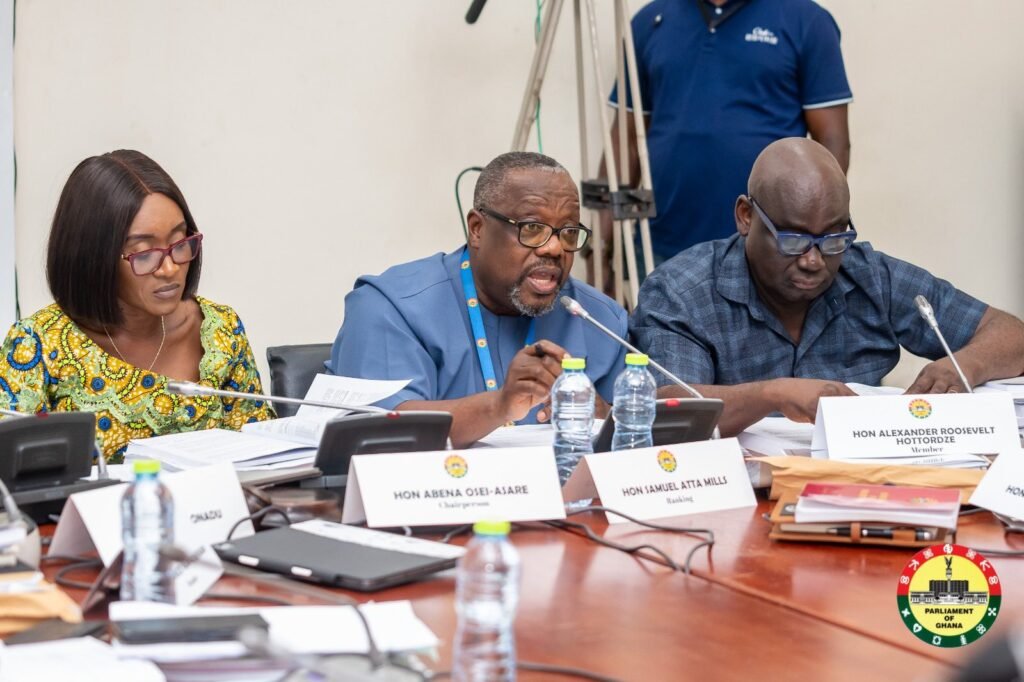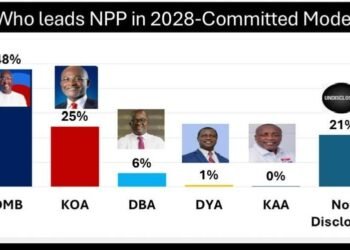The Public Accounts Committee (PAC) of Parliament, working in close collaboration with the Auditor-General, has successfully retrieved GH¢12.9 billion of misapplied public funds, a significant milestone in Ghana’s ongoing fight against financial mismanagement and corruption.
Confirming the recovery, Hon. Abena Osei Asare, Member of Parliament for Atiwa East and Chairperson of PAC, stated that the committee’s work, backed by the audit reports, had already made tangible gains in the protection of public resources.
She explained that PAC would soon release a comprehensive report detailing the retrieval process and outlining areas where further improvements are needed in safeguarding state finances.
While the recovery of GH¢12.9 billion is being hailed as a success, Hon. Osei Asare emphasized that the achievement must be viewed as a step in a larger process of reform.
She stressed the importance of collaboration across all sectors, particularly with the media, in spotlighting cases of financial abuse and building momentum for systemic change.
“So yes, we are making an impact, but we can do better than what we are doing now, and that is why we want to ask for support from the media as well, because we are all partners in this.
“As we all bring it to the fore and see how best we can support each other to make sure the right things are done, I believe it will go a long way to reduce the infractions that we see when it comes to the management of our public finances.”
Hon. Abena Osei Asare, Member of Parliament for Atiwa East and Chairperson of PAC
Her remarks come in the wake of the Auditor-General’s 2024 report on the Public Accounts of Ghana covering public boards, corporations, and other statutory institutions for the year ending December 31, 2024.

According to the report, the nation recorded GH¢18.4 billion in financial irregularities in 2024 alone. Disturbingly, the Energy Ministry and its allied agencies topped the list of institutions with the highest levels of infractions, reflecting deep-seated challenges in accountability across the sector.
The Auditor-General’s report has traditionally been a source of public outcry, often exposing systemic weaknesses in financial management, procurement practices, and accountability in the handling of state funds.
The scale of irregularities in 2024 underscores persistent concerns about how public institutions operate, with issues ranging from unapproved payments and procurement breaches to misapplication of resources and weak internal controls.
Ghana’s Financial Oversight Systems under Scrutiny
The staggering figures highlighted in the Auditor-General’s report have reignited debate on the effectiveness of Ghana’s financial oversight systems and the consequences faced by individuals and institutions found culpable.
Critics argue that while recoveries are commendable, punitive measures against those responsible for the infractions remain weak, allowing recurrent abuses year after year.
The latest developments highlight a paradox. On one hand, the retrieval of GH¢12.9 billion demonstrates that the oversight architecture can deliver results when backed by rigorous audit processes and parliamentary scrutiny.
On the other hand, the continuing rise in financial irregularities, now totaling GH¢18.4 billion for 2024, reveals persistent institutional weaknesses, particularly in ministries such as Energy, where mismanagement appears entrenched.
Stakeholders have called for tighter monitoring mechanisms, improved internal audit functions, and greater transparency in contract management to prevent further abuses.

For PAC, the challenge lies not only in scrutinizing financial statements but also in ensuring that its recommendations are enforced. Hon. Osei Asare underscored that the committee’s commitment goes beyond hearings and reports; it extends to ensuring that culprits are held accountable and that loopholes in financial administration are permanently sealed.
The retrieval of GH¢12.9 billion, though significant, still leaves a worrying gap when compared with the GH¢18.4 billion irregularities flagged by the Auditor-General in 2024, as the difference reflects amounts that may never be fully recovered unless stronger legal and institutional enforcement mechanisms are introduced.
The PAC Chairperson’s assurance of a forthcoming detailed report has also raised hopes that the public will soon have access to comprehensive data on the progress made so far and the outstanding challenges. Such transparency, analysts say, will be crucial in building trust and encouraging citizens to actively participate in the accountability process.
Ultimately, the retrieval of GH¢12.9 billion marks an important milestone in Ghana’s accountability journey. Yet, the sheer scale of financial irregularities in 2024 reminds the nation that much work remains to be done.
The task before PAC, the Auditor-General, and all stakeholders is to move beyond recovering funds to ensuring systemic reforms that will protect Ghana’s public purse in the long term.
READ ALSO: Ghana’s Economic Gains: IMANI Warns Against Complacency, Demands Sustained Reforms























